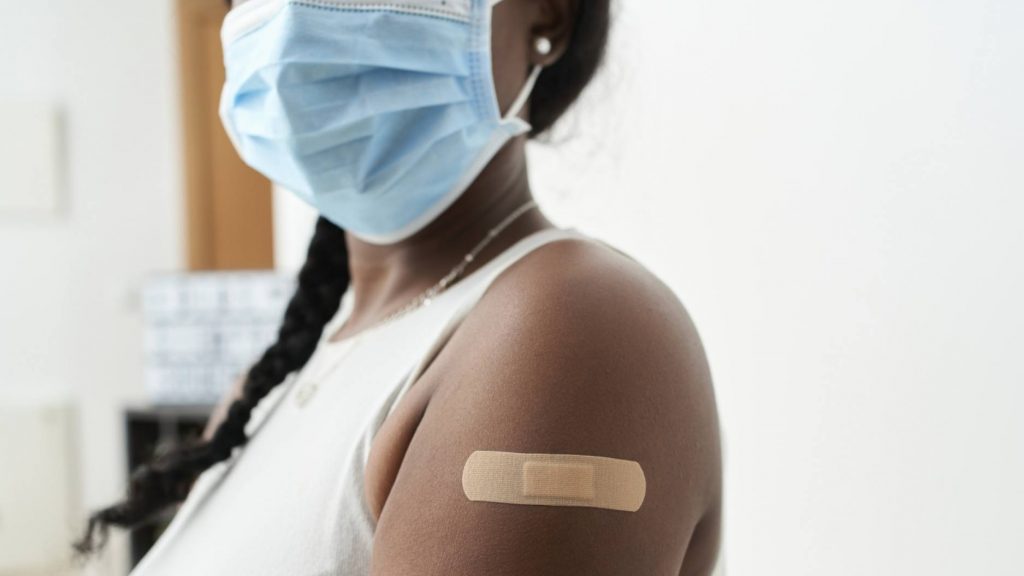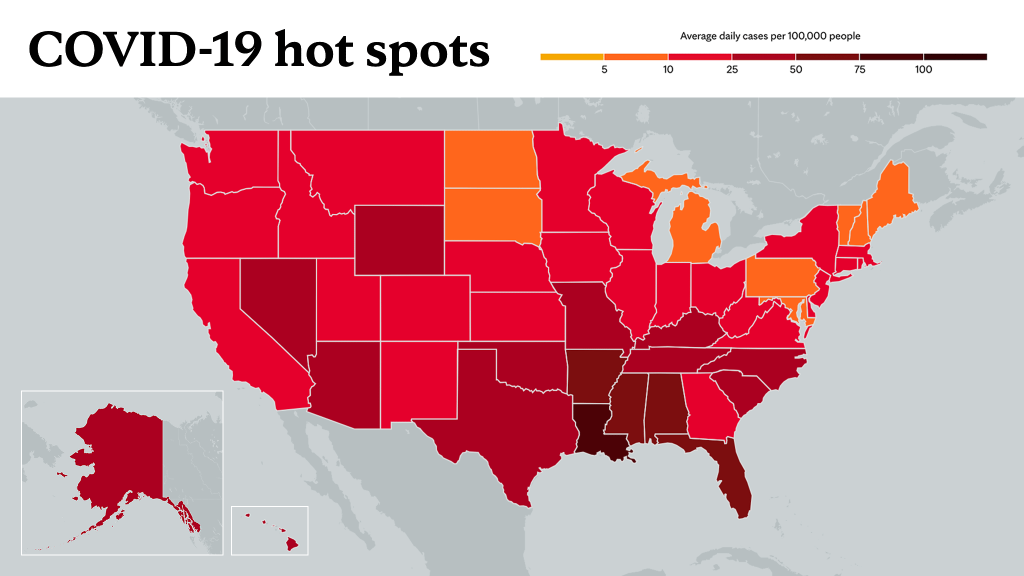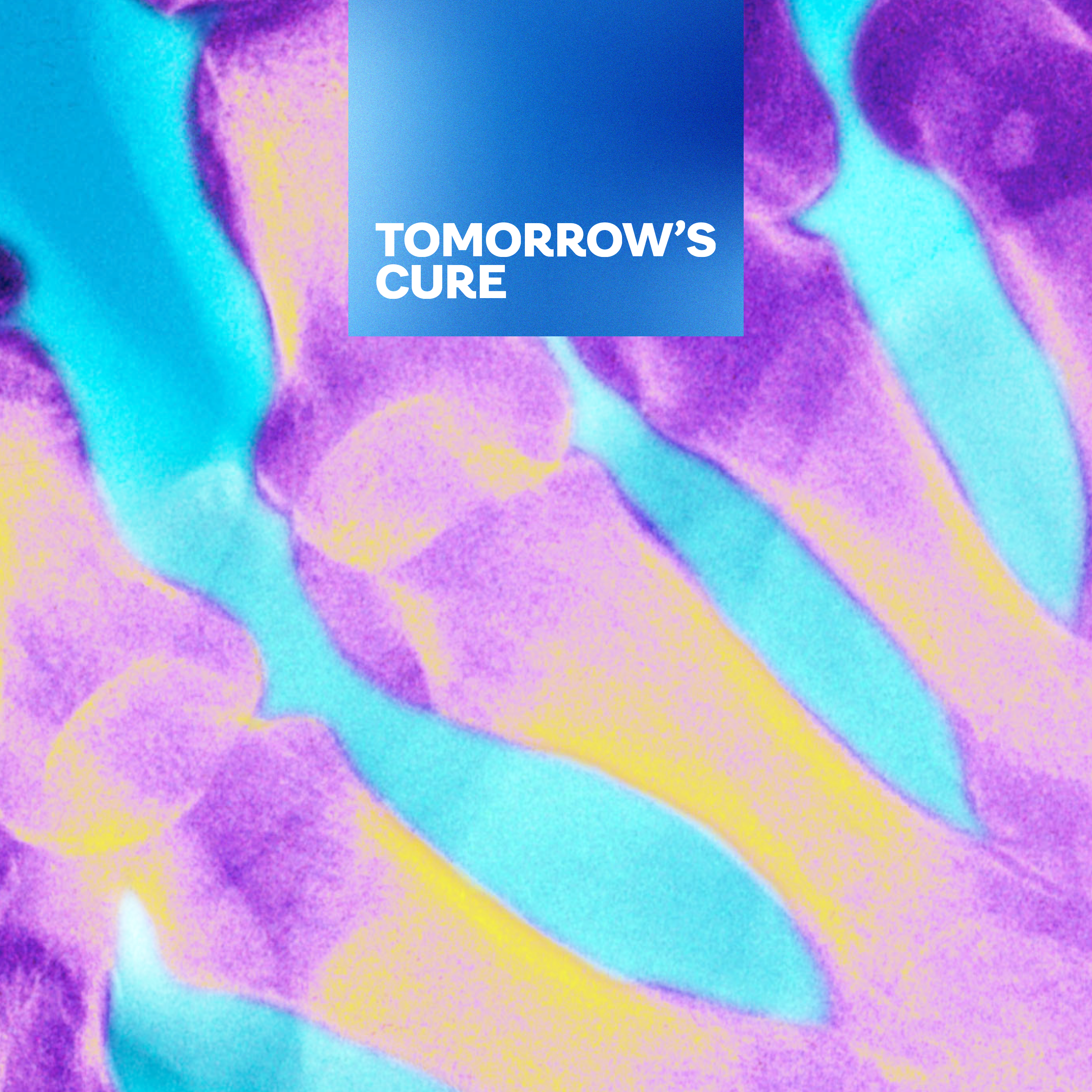
As the delta variant continues to spread across the country, new data from the Centers for Disease Control and Prevention (CDC) show vaccinated people can still spread COVID-19. Breakthrough infections of the highly contagious delta variant also have been reported. This new information has led to questions surrounding the effectiveness of the current COVID-19 vaccines.
Watch: Dr. O'Horo discusses COVID-19 infection among vaccinated people.
Journalists: Broadcast-quality sound bites are in the downloads at the bottom of the page. Please courtesy, "John O'Horo, M.D./Infectious Diseases/Mayo Clinic."
The Mayo Clinic New Network team sat down with Dr. John O'Horo, a Mayo Clinic infectious diseases specialist. In this Q&A, he breaks down what people should know about COVID-19 infection and transmission among people who have been vaccinated for COVID-19:
Can people who are fully vaccinated for COVID-19 still transmit COVID-19 and its variants, specifically the delta variant?
Fully vaccinated people have the potential to transmit COVID-19 to others. This appears to be reduced with vaccination, but it's not reduced enough to allow for unmasking in all situations because of this potential. That's why people in areas of high transmission are still asked to mask. This is also why people who are in areas where they're especially vulnerable patients or people like in hospital settings where we take care of patients who may have weaker immune systems are still recommended to wear masks to protect those who are at the highest risk of transmission, even from vaccinated people.
We know that some people who are vaccinated have the ability to have high levels of virus in their nose and in their throat, even if they don't have symptoms. This isn't a surprise, as many different types of vaccines prevent illness, but don't necessarily prevent you from being able to transmit that illness to others.
Why should people get vaccinated for COVID-19 if they can still be infected or spread it to others?
What I say to people who are concerned that they can still get infected by the delta variant even though they're vaccinated is your illness if you get infected is going to be far, far less severe than if you don't get vaccinated. Most people who get vaccinated aren't going to get infected. Of those who get infected, the vaccination takes what can be a deadly illness down to something you may not even aware of, or a bad cold at the worst. Unless you are immunocompromised or have conditions where the vaccination doesn't really take, and you're in one of those vulnerable groups, your risk of having a severe infection that lands you in the hospital or puts you in mortal danger is far, far lower when you get vaccinated.
How will widespread vaccination help stop the spread of COVID-19 and its variants?
Widespread vaccination is still our road back to normal. If enough people are vaccinated, we will reduce transmission of the virus. We know that even though it's not perfect at reducing transmission, it drastically reduces that. It reduces your risk of being hospitalized or having severe illness even more, and if enough people are vaccinated, the risk of overwhelming hospitals or having large numbers of sick people goes down, and we can start to get back to normal.
____________________________________________
For the safety of its patients, staff and visitors, Mayo Clinic has strict masking policies in place. Anyone shown without a mask was either recorded prior to COVID-19 or recorded in a nonpatient care area where social distancing and other safety protocols were followed.
Information in this post was accurate at the time of its posting. Due to the fluid nature of the COVID-19 pandemic, scientific understanding, along with guidelines and recommendations, may have changed since the original publication date.
For more information and all your COVID-19 coverage, go to the Mayo Clinic News Network and mayoclinic.org.
Learn more about tracking COVID-19 and COVID-19 trends.








